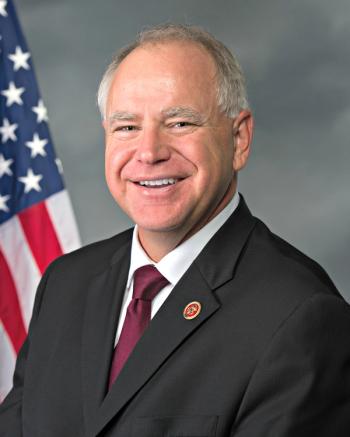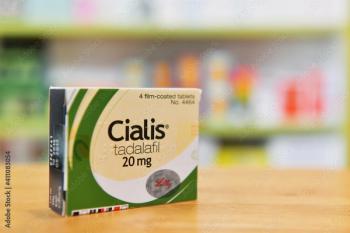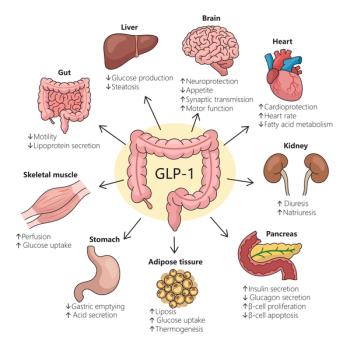
Population health analyst on a dedicated health equity team, Optum Rx

Peter Wehrwein has been the lead editor of Managed Healthcare Executive since February 2020.

Population health analyst on a dedicated health equity team, Optum Rx

Co-founder and CEO at Fabric Health, a public benefit corporation that conducts outreach about health benefits at laundromats

Director, formulary operations, Capital Rx, a pharmacy benefits manager and healthcare technology company

General counsel, 1upHealth, Inc., a healthcare data interoperability company in Boston.

The CDC has raised the recommded age at which people should get vaccinated to 75 and there are now three FDA-approved RSV vaccines

Health equity program director, Fallon Health, a not-for-profit health plan and provider of care headquartered in Worcester, Massachusetts.

But the Minnesota governor and Kamala Harris' running mate was endorsed by the United Auto Workers and other unions soon after this morning's announcement that he was her VP pick.

Humira and Sterlara are still the mainstays of spending, but Vizient that expenditures on drugs that treat genetic disorders will climb to $25 billion in 2026,

Nine of the 10 top specialty drugs by expenditure are biologics, according to the Pharmaceutical Strategies Group report on specialty drug spending.

Juan Michael Porter II, a prominent healthcare journalist and HIV advocate, spoke to MHE about keeping HIV/AIDS a priority and the dynamics of funding programs and pharmaceutical pricing

Phase 3 trials reported at the International AIDS Society meeting this week show no infections among those randomly assigned to twice-year injections of lenacapavir and no reason to be worried about safety,.

Results from the BEYOND trial show positive clinical outcomes and patient experiences.

Healthcare journalist, HIV advocate and educator Juan Michael Porter II discussed moderating the "Future of Science" session at the International AIDS Society's AIDS 2024 meeting in Munich, Germany, as well as addressing "founder's syndrome" in AIDS organizations and the inclusivity of the event.


The number of biologics approved as treatments for psoriasis has proliferated but the FDA has approved just four for use in children. Six biologics for pediatric psoriasis are in various stages of development.

Dante J. Pieramici, M.D., of the California Retina Research Foundation, explains changes made to the Susvimo port delivery system that are designed. to prevent the septum dislodgment that led to Genentech pulling the product off the market.

The two-year study period might not have been long enough to capture tadalafil's effect, which could be positive for dry age-related macular degeneration (AMD) and negative for wet AMD.

Results of the American Society of Retina Specialists annual survey provide insight into opinions of its members and their current and future practice patterns.

Results from retrospective real-world studies presented at American Society of Retina Specialists annual meetiing put the risk of retinal vasculitis from Syfovre at 1 in 1,330 patients. But other results presented at the meeting supplied evidence that Syfovre fends off vision loss caused by geographic atrophy, an advanced form of dry age-related macular degeneration.

Session on diabetic retinopathy includes results from trials of a variety of approaches to retinopathy.

Findings from an analysis of data from the pivotal PHOTON trial didn't show any increased risk of higher intraocular pressure building from injections of the high-dose, 8-mg version of Eylea.

But the presenter downplayed the rivalry between the two new treatments for geographic atrophy. “I think we are lucky to have multiple therapies,” saidPaul Hahn, M.D., Ph.D. of NJRetina.

In this part two interview with Parisi Emami-Naeini from UC Davis Eye Center, she explains that improvements in methods and instruments, faster procedure time and declining reimbursement rates have made pars plana vitrectomy the preferred method for repairing detached retinas, along with reduced training in scleral buckle procedures for new retina specialists.

The study's results were presented today at the American Society of Retina Specialists meeting in Stockholm, Sweden, by Parisi Emami-Naeini, M.D., M.P.H., a retina specialist at the Tschannen Eye Institute at the UC Davis Eye Center.

But the Mayo Clinic ophthalmologist who presented the findings stressed that it was “hugely reassuring” the GLP-1s were comparable to older diabetes drugs with respect to retinopathy given all their other advantages.

Emerson, the program chair of ASRS and one of the organizers of the meeting's content, is a retina specialist at Retina Consultants of Minnesota and medical director at the Phillips Eye Institute in Minneapolis and an associate adjunct professor at the University of Minnesota.

Geoffrey G. Emerson of Retina Consultants of Minnesota and medical director at the Phillips Eye Institute in Minneapolis and an associate adjunct professor at the University of Minnesota, previews the 2024 annual meeting of the American Society of Retina Specialists (ASRS) starting Wednesday, July 17, in Stockholm, Sweden.

One theme of the Federal Trade Commission’s interim take on pharmacy benefit managers is vertical integration and how that affects competition in the industry.

The active ingredient in Ozempic and Wegovy is linked to nonarteritic anterior ischemic optic neuropathy (NAION), the second most common form of optic neuropathy. This is apparently the first study to link semaglutide to the eye condition.

The presidential candidates didn't spend a lot of time talking about healthcare issues last night, but Democrats are concerned about Biden's performance, especially early on.